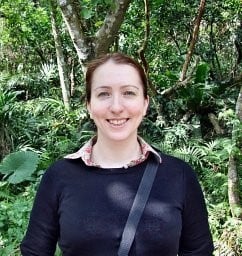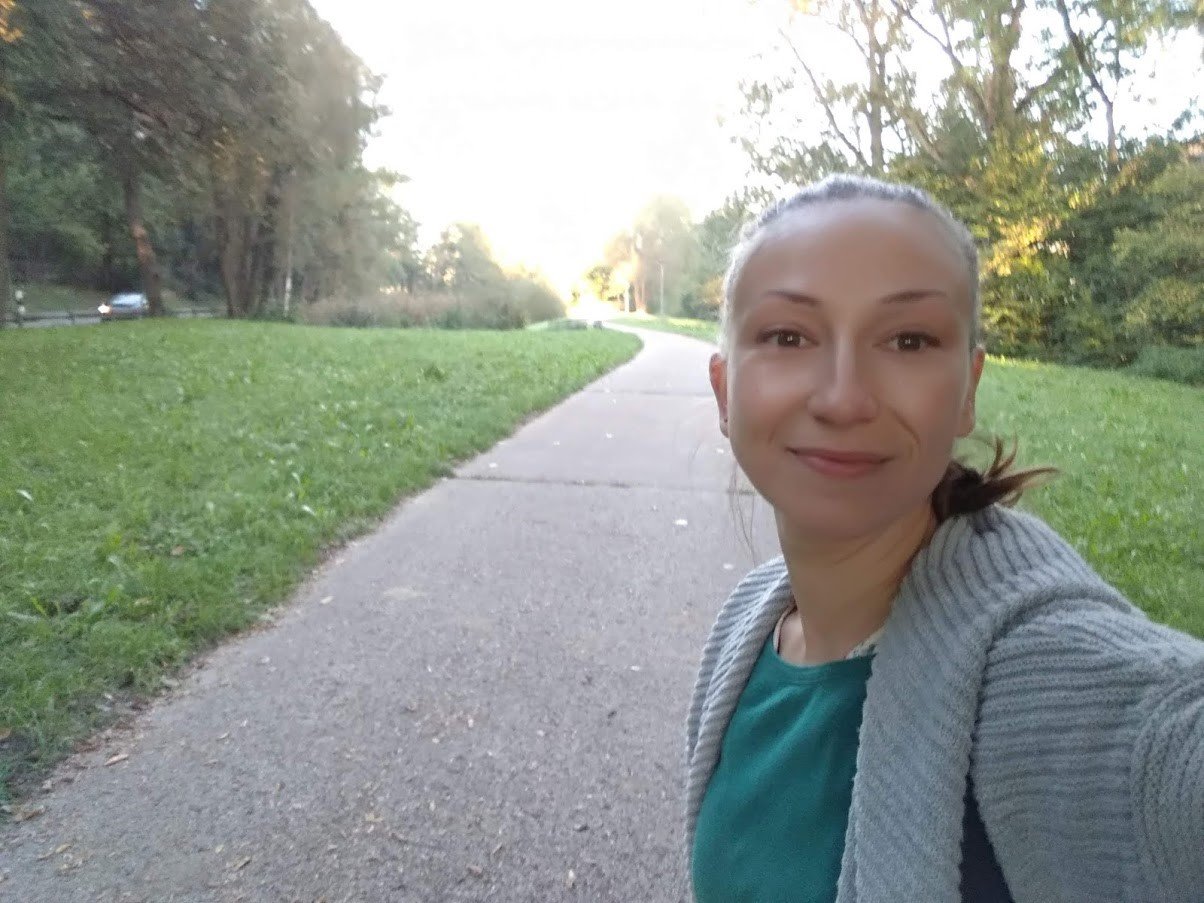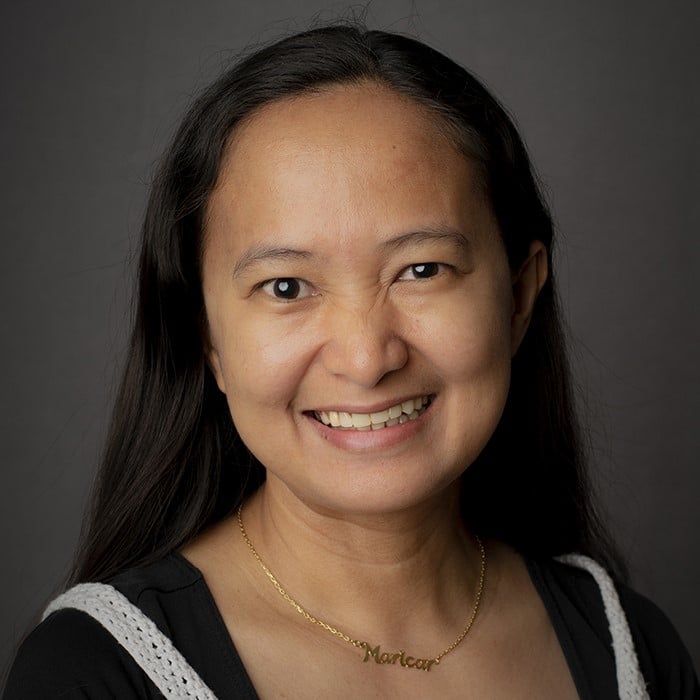
Journal Menu
► ▼ Journal Menu-
- Forests Home
- Aims & Scope
- Editorial Board
- Reviewer Board
- Topical Advisory Panel
- Instructions for Authors
- Special Issues
- Topics
- Sections & Collections
- Article Processing Charge
- Indexing & Archiving
- Editor’s Choice Articles
- Most Cited & Viewed
- Journal Statistics
- Journal History
- Journal Awards
- Conferences
- Editorial Office
Journal Browser
► ▼ Journal BrowserNeed Help?
Announcements
26 February 2021
Forests | 2021 Graduate Student/Post-Doc Travel Awards Winners Announced
We are pleased to announce the two awardees for the 2021 Forests Graduate Student/Post-Doc Travel Awards, Ms. Pipiet Larasatie and Ms. Tania L. Maxwell.
|
|
Ms. Pipiet Larasatie is completing her PhD at Oregon State University, Corvallis, OR, USA. She is an interdisciplinary scholar and social scientist researching sustainable business management and forest sector competitiveness. Her current research includes engineered wood industry development, public perceptions of wooden multi-story buildings, forest-based circular bioeconomy, and gender dynamics in the forest industry and faculties of forestry. For more information about her research and publications, please visit her personal website www.competitive-forest.com. |
|
|
Ms. Tania L. Maxwell is a PhD student at the French National Research Institute for Agriculture, Food and Environment (INRAE), completing a double-degree program focused on Biogeochemistry and Ecosystems at the Université de Bordeaux, and Forest Sciences at the Université Laval in Quebec, Canada. Her professional interests include soil ecology, biogeochemistry, forests, global changes, and R and coding. |
Each of them will receive the following:
–– CHF 600 (Swiss francs);
–– Opportunities to publish a paper with a 30% discount in 2021;
–– A certificate.
For more information about Forests awards, please see the following link: https://www.mdpi.com/journal/forests/awards.
26 February 2021
Forests | 2020 Young Investigator Awards Winners
We are pleased to announce that the winners of the Forests 2020 Young Investigator Award are Dr. Rachael Nolan and Dr. Adriane Esquivel Muelbert.
|
|
Dr Rachael Nolan is a lecturer of fire ecology and biogeosciences at the Hawkesbury Institute for the Environment, Western Sydney University, Sydney, Australia. She is fascinated by the role of disturbances in ecosystems, in particular the effects of fire on the landscape. She has two main areas of research. The first is focused on understanding how ecosystems respond to disturbance, and what this means for ecosystem services such as carbon sequestration, habitat values and water resources. The second research area she focuses on is developing models of forest flammability in relation to dynamics of fuel loads and moisture content. |
|
|
Dr. Adriane Esquivel Muelbert is a lecturer in Global Forest Ecology at School of Geography, Earth and Environmental Sciences, University of Birmingham, Birmingham, UK. She is interested in Global Change Ecology, particularly of forests. Adriane’s goal is to unravel the implications of global change on biodiversity and forest dynamics and how these will affect forests’ role in the global biogeochemical cycles. Her work leverages large sources of field-based data on forest dynamics, functional traits, and species composition to answer questions at a continental and global scale. She is passionate about tropical forests and their complexity, particularly the Amazon, and seeks to translate her research into conservation efforts. |
Each of them will receive the following:
Prize for Winners:
– An official certificate
– 1000 CHF (Swiss Francs)
– Option to publish two papers, after peer review, in Forests with a 50% discount on the article processing charge.
For more information about Forests awards, please see the following link: https://www.mdpi.com/journal/forests/awards.
23 February 2021
Forests | In Cooperation with the ForestDSS CoP and IUFRO on Special Issue “Spatial Decision Support for Forest Management and Policy Formulation”
We are pleased to announce that Forests is collaborating with the ForestDSS CoP and four units of the International Union of Forest Research Organizations (IUFRO) on the Special Issue “Spatial Decision Support for Forest Management and Policy Formulation”. The IUFRO units in this collaboration are:
- Uncertainty analysis, computational ecology, and decision support (Unit 4.03.00);
- Characterization of uncertainty in forest modelling systems (Unit 4.03.01);
- Machine learning and computational ecology (Unit 4.03.02);
- Decision support systems and related information technologies for the sustainable management of forest systems (Unit 4.03.03);
- Sustainable forest management scheduling (Unit 4.04.04).
Decision support systems for forest management have been steadily evolving since about 1980 in response to growing demand from forest managers for sophisticated analytical systems that can address the complexities of contemporary forest management issues such as adaptive management in the context of managing forest ecosystem sustainability, integrity, and resilience while ensuring the provision of ecosystem services. In this same time frame, there has also been a steady shift in emphasis from stand-level to landscape-level decision support systems, in part driven by the improved ecological understanding of, and appreciation for, the need to account for patterns and processes in forest management and planning.
Accordingly, we set up a 2021 Special Issue on spatial decision support systems and their application to state-of-the-art landscape solutions for forest management and policy formulation. In this initial call, manuscript proposals are invited for original research and review articles addressing:
- Contemporary, state-of-the art systems and their application, emphasizing spatial decision support for either forest management or policy formulation;
- Forward-looking (and perhaps more speculative) articles on how to advance spatial decision support technologies for forest management and policy formulation beyond the current state-of-the-art.
Spatial decision support technologies have evolved in numerous pathways, including knowledge-based, probabilistic, and linear programming systems, as well as combinations of these and other technologies, so articles addressing any of these areas are welcome.
More information about the current call and submission requirements can be found here:
https://www.mdpi.com/journal/forests/special_issues/decision_support_forest_management_policy.
8 February 2021
Section in Forests: Wood Science and Forest Products
We are pleased to announce that MDPI’s open access journal Forests is modifying the section name "Wood Science" to "Wood Science and Forest Products". With this change, Forests aspires to provide a worldwide medium for research into all aspects of wood science, including forests and plantations, wood components, and wood-based products. The section also publishes articles on non-wood products derived from forest resources, collectively described as non-timber forest products (NTFPs).
We invite you to visit the updated website to discover what is new!
3 February 2021
Call for Reviewers for Forests
We hope to call upon your expertise as a reviewer to help maintain the quality and efficiency of Forests.
We are particularly interested in recruiting reviewers in the following fields related to forests. In recent decades, this area has attracted a lot of research interest and significant progress has been made. We welcome scholars with research experience in topics including but not limited to the following:
- forest ecology, management, and restoration;
- forest economics and natural resource policy and planning;
- silvicultural systems;
- forest entomology and forest pathology;
- forest ecophysiology and biology;
- forest genetics, tree breeding, and biotechnology;
- climate change impacts, adaptation, and mitigation in forests;
- forest biomass, bioenergy, and carbon sequestration;
- forest engineering;
- tropical forests and management;
- forest inventory, quantitative methods, and remote sensing;
- forest soil management;
- forest simulation modeling;
- forest and nature-based recreation;
- wildland fire science and management;
- wood properties;
- human dimensions;
- urban forests.
We will extend the following benefits to reviewers:
- The Forests Editorial Board will acknowledge all reviewers in its annual reviewer list through a publication/announcement in the “Acknowledgement to Reviewers of Forests” editorial on the journal website.
- Reviewer members who provide prompt, thorough, rigorous peer-review reports will receive a voucher that can be applied to reduce the cost of their next publication in an MDPI journal.
- We hold an “outstanding reviewer award” yearly to acknowledge our reviewers who so generously give their time to review papers for the journal. There would be a chance for you to receive this award. Please click here for more details: https://www.mdpi.com/journal/forests/awards.pdf/0/pdf_42_2022_1_award.pdf.
- Reviewers may be presented with the option to join the Editorial Board of the journal (subject to the approval of the Editor-in-Chief).
If you are interested in this work, please submit your information at https://susy.mdpi.com/volunteer/profile/edit.
We would greatly appreciate your support and hope you will join our team of reviewers!
Forests Editorial Office
31 January 2021
Forests Now Indexed by PaperChem
We are pleased to announce that Forests (ISSN 1999-4907) was recently selected for indexing in the PaperChem (Elsevier) database:
27 January 2021
Forests 2020 Outstanding Reviewer Awards Winners
We are pleased to announce the 2020 Outstanding Reviewer Awards of Forests. Following reviewers have been selected on the basis of the timeliness, quality, and speed of their review reports. They are:
|
|
|
|
|
|
|
|
|
|
|
|
Each of them will receive the following:
- CHF 500 (Swiss francs);
- Opportunities to publish papers (no quantity limit) with 50% discount in 2021;
- A certificate.
We thank them for their efforts in the review process. In addition, we would like to express our sincere gratitude to all the reviewers for their time and dedication in 2020.
For more information about Forests awards, please see the following link: https://www.mdpi.com/journal/forests/awards.
28 December 2020
New Editorial Board Members Joined Forests
We welcome the following recognized researchers, who recently joined the Editorial Board of Forests:
|
Prof. Dr. Carlo Blasi |
Prof. Dr. Stanisław Małek |
|
Prof. Dr. Jan Bocianowski |
Dr. Dan Metcalfe |
|
Dr. Manuela Branco |
Dr. Brad Murray |
|
Dr. Felipe Bravo |
Dr. Takuo Nagaike |
|
Dr. Giorgio Brunialti |
Dr. Jose Antonio Navarro Cano |
|
Dr. Federico Di Rita |
Dr. Romà Ogaya |
|
Dr. Laszlo Erdos |
Dr. Antonios Papadopoulos |
|
Dr. Juan F. Fernández-Manjarrés |
Dr. Nicholas Payne |
|
Dr. Luisa Frati |
Dr. Tomas Pypker |
|
Prof. Dr. Oliver Gailing |
Dr. Bryce Richardson |
|
Prof. Dr. Herminia García-Mozo |
Prof. Dr. Paul-Antoine Santoni |
|
Dr. Guillermo Gea-Izquierdo |
Dr. Meelis Seedre |
|
Dr. Filippo Giadrossich |
Prof. Dr. Mark Tibbett |
|
Dr. Pablo Gotor |
Prof. Dr. Mulualem Tigabu |
|
Prof. Dr. David F. Greene |
Dr. Eddie J.B. van Etten |
|
Dr. H. Roaki Ishii |
Dr. Rimvydas Vasaitis |
|
Dr. Rebecca Jordan |
Prof. Dr. Arild Vatn |
|
Dr. Colin Kelleher |
Dr. Joana Ferreira |
|
Dr. David Kenfack |
Prof. Dr. Cristina Nabais |
|
Dr. Xiangdong Lei |
Dr. Marta Pardos |
|
Dr. Martin Maier |
|
We wish them every success in developing the journal.
Further details concerning the Editorial Board can be found at: https://www.mdpi.com/journal/forests/editors
28 December 2020
Recruiting Editors for New Section “Genetics and Molecular Biology” in Forests
In order to better categorize the papers published in the journal, the section “Genetics and Molecular Biology” has recently been established. We are now recruiting Editorial Board members for this new section (https://www.mdpi.com/journal/forests/sections/genetics_molecular_biology).
If you are an active researcher in the field and are passionate about participating in cutting-edge research publications, please do not hesitate to contact us about joining the Editorial Board. As an Editorial Board member, you will have the following responsibilities:
- Make decisions on whether a manuscript can be accepted or not based on the reports we collect;
- Serving as the Editor of a Special Issue on a topic related to your research interests when it is convenient for you;
- Reviewing a number of manuscripts in your area of interest when you are available;
- Recommending topics or appropriate conferences;
- Promoting Forests and increasing its visibility at related academic conferences.
Editorial Board Members are entitled to publish one paper free of charge in Forests each year and apply for additional discounts for papers invited by you.
Further information about the Editorial Board may be found at https://www.mdpi.com/editors.
If you are interested in becoming an Editorial Board Member for Forests, please send us your full academic CV and a short cover letter that details your interest and enthusiasm for the position.
Forests Editorial Office
28 December 2020
Dr. Carol A. Loopstra Appointed Section Editor-in-Chief of “Genetics and Molecular Biology” in Forests
We are pleased to announce that Dr. Carol A. Loopstra has been appointed as the Editor-in-Chief of the new Section “Genetics and Molecular Biology” in Forests.

Dr. Carol A. Loopstra is an Associate Professor at the Department of Ecology and Conservation Biology at Texas A&M University, College Station. She works on the genomics of loblolly pine. Her most recent publications have dealt with SNP (single nucleotide polymorphism) discovery and association genetics in loblolly pine. Her current work focuses on identification of markers that could be used by breeding programs to increase drought tolerance, water-use efficiency, and yield of loblolly pine in the southeastern United States. Gene expression and regulation has been her long-term interest as well. Dr. Loopstra teaches “Forest Trees of North America” and “Forest Tree Improvement and Regeneration” in the undergraduate Forestry program, where she also serves as the Forestry Program leader.
We warmly welcome Dr. Loopstra as the Editor-in-Chief of the section “Genetics and Molecular Biology”, and we look forward to Forests achieving many milestones under her leadership.
For further information on the journal section, please click: https://www.mdpi.com/journal/forests/sections/genetics_molecular_biology











